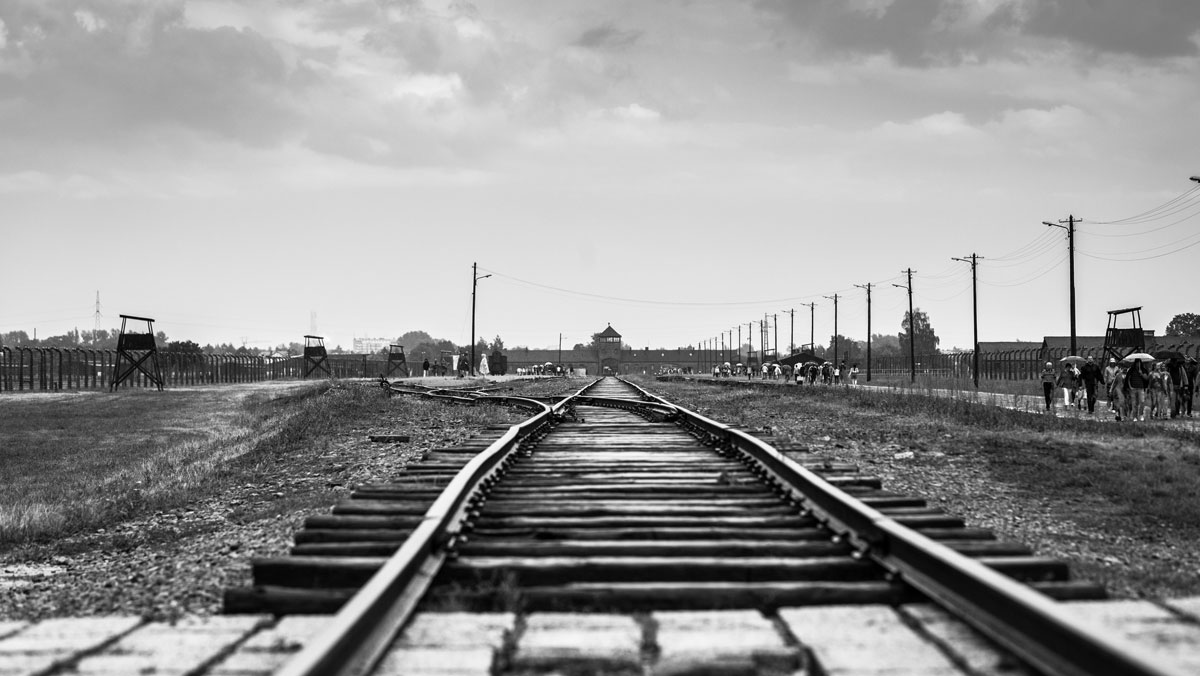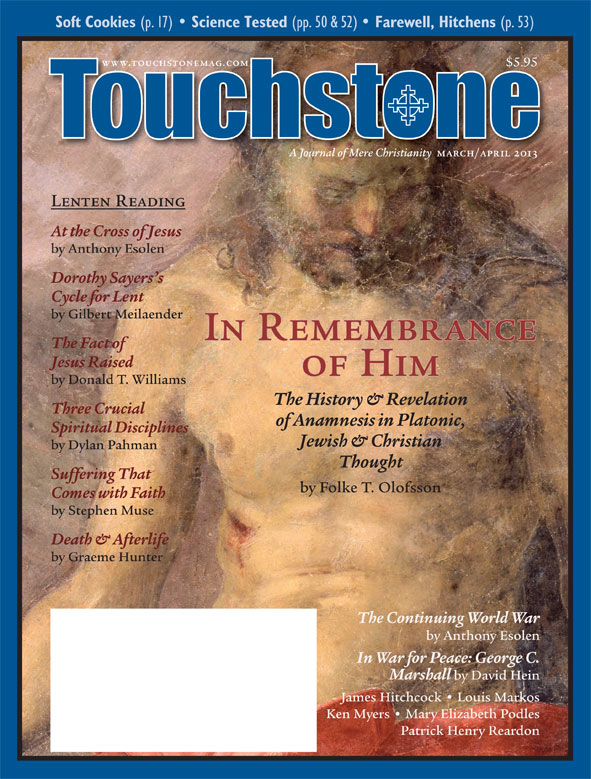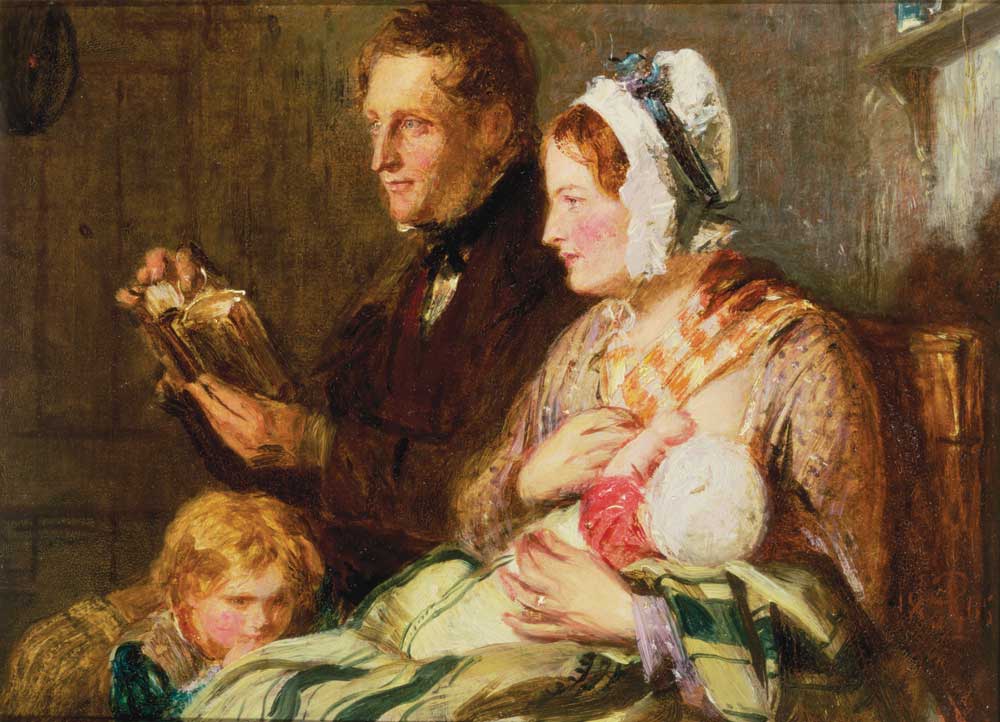Introduction
I think anyone who has ever read No Dead Man's Prayer by Stephen Muse has read it more than once, as it works through some of the most difficult questions Christians face regarding the problem of evil.
I usually like to write a short introduction to our archive articles to pique the reader's interest, but I'm not sure any introduction I could write would do it justice. Trust me, this is one you don't want to skip.
—Douglas Johnson, Executive Editor
(read more Editor's Picks)
No Dead Man's Prayer by Stephen Muse
View
No Dead Man's Prayer
Stephen Muse on the Suffering of Faith & the Paradox of Psalm 88
More than any other scriptural lament, Psalm 88 has for me proved helpful in pastoral psychotherapy with those whose rage, pain, abandonment, and despair have been deeply buried beneath the pride of human self-sufficiency.
A soldier back from his ninth deployment told me, "I feel dead. I think God is being destroyed in my life." He was numb and controlled as he spoke of "picking up the body parts of soldiers in my unit" and described his subsequent visits to the spouses of the men. "What do you say when they ask if he suffered in death and I can't say, 'Yes, he burned to death in agony . . .'?" When he smells meat cooking, he recalls the burning flesh and hair from the IED (Improvised Explosive Device) explosions he witnessed.
At night, he lies awake listening to every sound, returning to the same places in his mind over and over and imagining his teen-age daughter being injured by a world whose danger she is not aware of in the way that he is. "She was elected homecoming queen. Why can't I feel happy for her?" Once, in Iraq, he sought out the wilderness between the Tigris and Euphrates Rivers, hoping for solace in God's presence as he was accustomed to as a boy in the forest around where he grew up. He opened his Bible and read the words, "Beside the rivers of Babylon we wept." "I got angry. God was mocking me."
Like so many combat veterans who say they feel "dead" inside, he had become a man at war within his own body and soul. Already adrift from his former spiritual home, he found himself now in danger of losing the love of his wife and daughter as well, by being rigid, controlling, and angry all the time.
At one point in our work together I handed him the Bible and asked him to read Psalm 88 aloud. (In the American context, because of its vivid language, Eugene Peterson's translation from The Message is the one I use with my clients.) Having been highly controlled and dissociated from his body and feelings for years since his combat experiences, he wept his way through it as the silent cries within him were given voice and experienced within the great liturgical tradition of those whose struggle with God transformed them. When he had finished, I said, "That is not the prayer of a dead man.'"
A Grief Revealed
From his open heart, he spoke for the first time of the deeper, hidden dimensions of his story. He was serving in the medical unit when a bomb exploded on a bus full of children, injuring dozens. Thirty minutes after their arrival, he was in the staging area where the most hopeless were triaged. A sixteen-year-old girl was there who looked into his eyes, mumbled something in Arabic, and was holding onto his finger as she died.
"How can I bring my daughter into this kind of world? She doesn't know the world as I know it." I responded, "And you have lost touch with the part of the world she knows." He was striving to uphold God made in his own human image, a kind of superman that is able to take care of everyone and does not permit human beings to suffer anything they cannot overcome on their own. This is the idolatry of individual self-sufficiency.
"I have heard your sadness. Where is your rage?" I asked. He said that he feared losing God if he touched the rage. "Perhaps I can't trust a Messiah who dies for the people instead of being a super Davidic king who conquers the enemy." This was also the expectation he held of himself, for which he could not forgive himself.
Buried deep inside him along with the rage and self-blame was yet more of his story. At that most precious and holy moment when the girl died, someone ripped away the blanket covering her, and he saw her naked body with one leg blown off to the hip. This reawakened in him a host of logismoi (a Greek word for troublesome thoughts), centered on memories and shame associated with having been repeatedly sexually molested by his 16-year-old babysitter as a boy and some subsequent years of promiscuity. He could not forgive himself for this. His compulsion to control his 16-year-old daughter's dating life upon his return from combat was revealed as a thinly veiled attempt to manage his own struggle to overcome self-hatred, fear, shame, lust, helplessness, anger, and distorted love—all of which threatened to overwhelm him from within.
Continue Reading
Stephen Muse is a pastoral psychotherapist and deacon serving in the Greek Orthodox Church. His most recent books are When Hearts Become Flame and Being Bread (Orthodox Research Institute Press). The Peddler and the Disenchanted Mirror is currently in press with Parrisia Editions.
Order
Print/Online Subscription

Get six issues (one year) of Touchstone PLUS
full online access including pdf downloads for only $39.95. That's only $3.34 per month!
Order
Online Only
Subscription

Get a one-year full-access subscription to the Touchstone
online archives for only $19.95. That's only $1.66 per month!
Order Touchstone subscriptions in bulk and save $10 per sub! Each subscription includes 6 issues of Touchstone plus full online access to touchstonemag.com—including archives, videos, and pdf downloads of recent issues for only $29.95 each! Great for churches or study groups.
Transactions will be processed on a secure server.
more on bible from the online archives
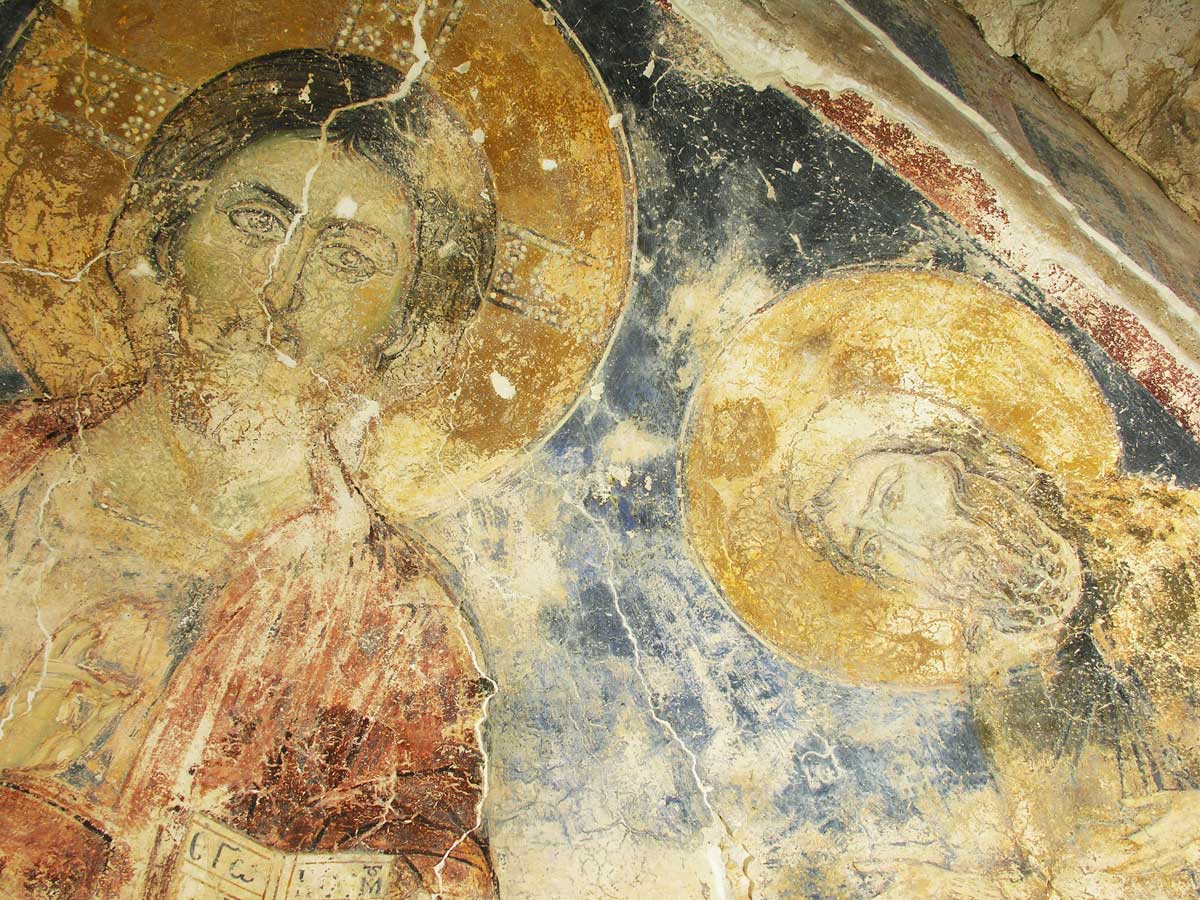
27.4—July/August 2014
The Things Freely Given
The Bible, Sacred Theology & the Mind of Christ by Patrick Henry Reardon
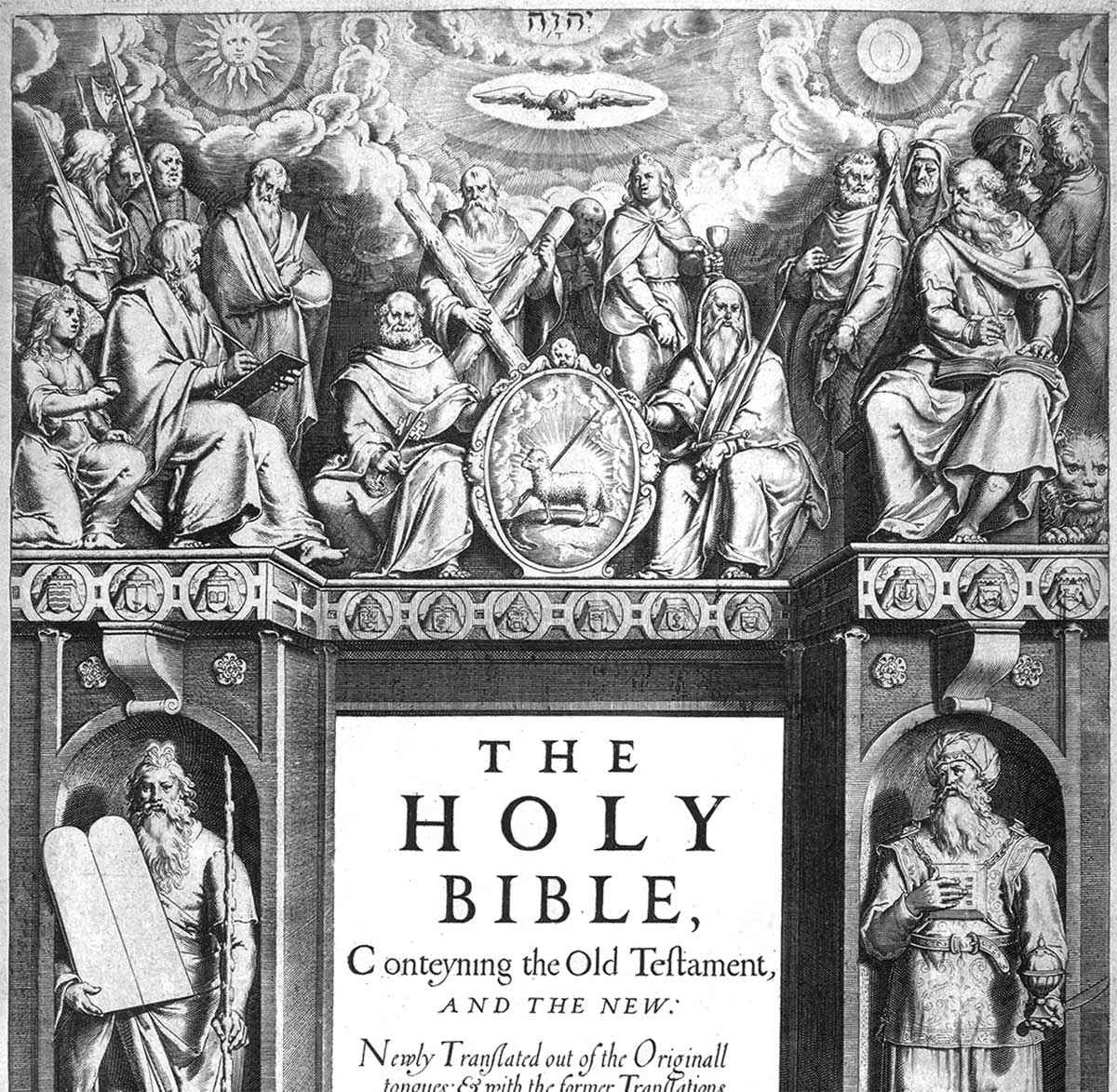
24.3—May/June 2011
God's English
The Making & Endurance of the King James Bible, 1611-2011 by Barton Swaim
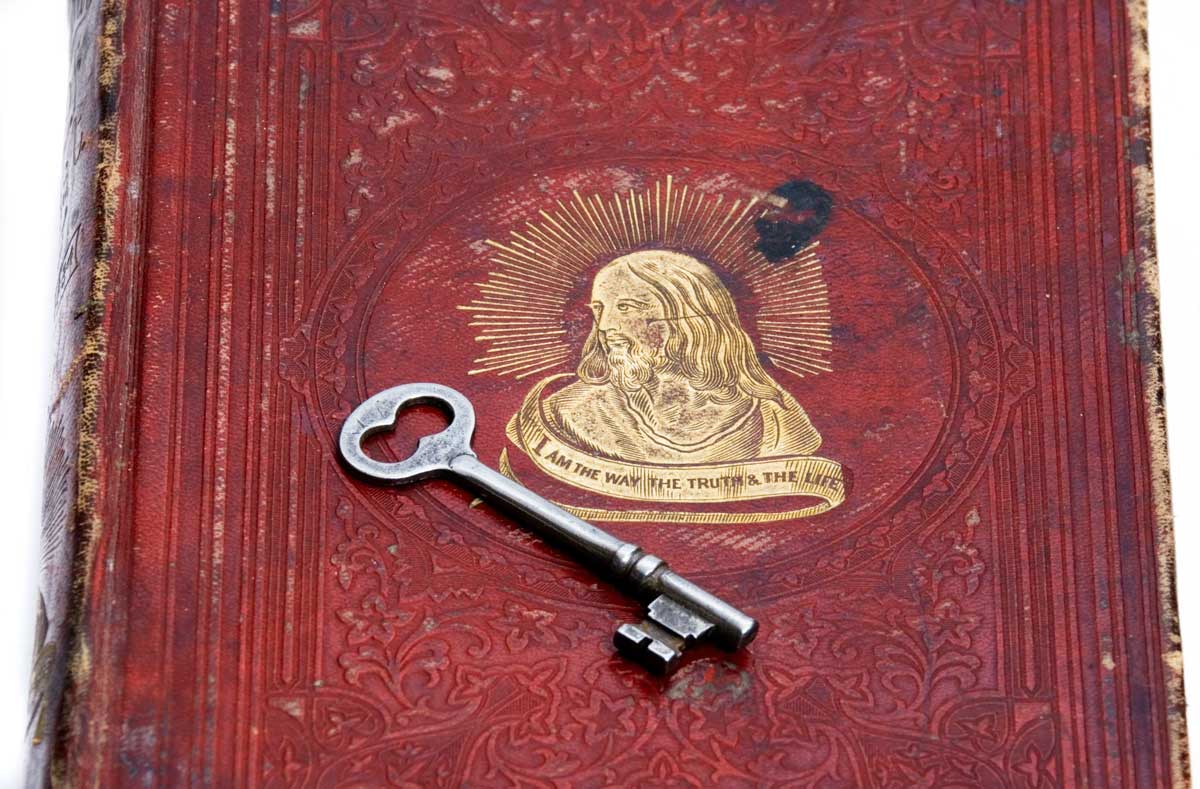
5.3—Summer 1992
The Bible Tells Me So
Everything You Need to Know About Morality & the Bible by David Mills
more from the online archives

22.2—March 2009
The Good Father
on the Manly Character of St. Joseph by Joseph R. Fornieri

31.1—January/February 2018
Mere Sexuality
Getting Sex Wrong Is a Foundational Error by James M. Kushiner
calling all readers
Please Donate
"There are magazines worth reading but few worth saving . . . Touchstone is just such a magazine."
—Alice von Hildebrand
"Here we do not concede one square millimeter of territory to falsehood, folly, contemporary sentimentality, or fashion. We speak the truth, and let God be our judge. . . . Touchstone is the one committedly Christian conservative journal."
—Anthony Esolen, Touchstone senior editor
Support Touchstone
00





